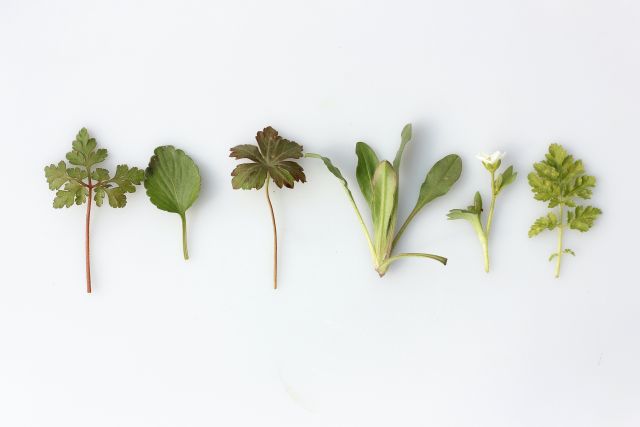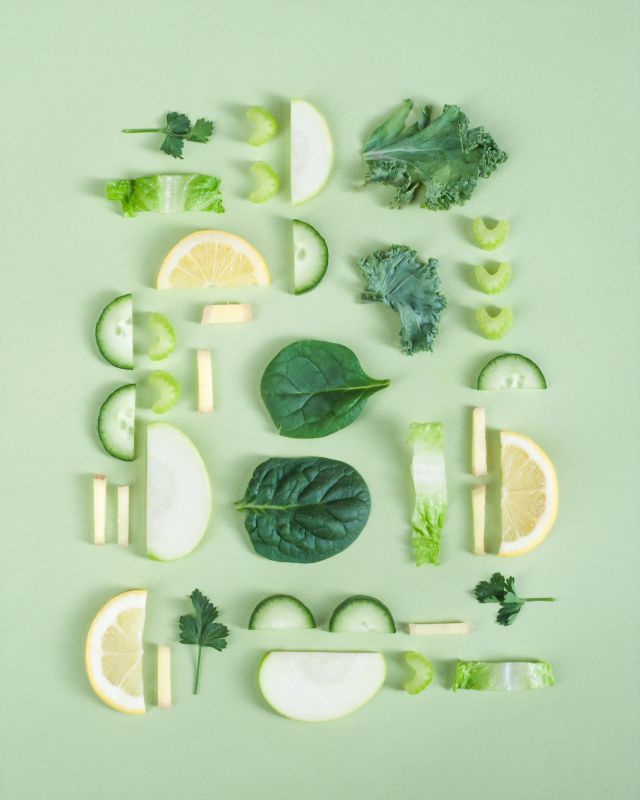The Nonalcoholic Beverage Explosion
In the last few years, the demand for nonalcoholic drinks has gone through the roof. Sales of no- and low-alcohol beverages grew by more than 7% in volume in 2022, and double-digit volume growth is predicted by 2026. As more people choose to either limit alcohol or forego it altogether, many entrepreneurs (and established companies) have created tastier, better options for nonalcoholic imbibing.
We’ll explore some of these beverages, though we emphasize and underline that we have no business relationship with any of these mentioned. Our goal is simply to highlight the growing landscape of these products, and how they offer some sophistication to adults seeking a lower-alcohol alternative.
Nonalcoholic Beverages vs. Alcohol-Free Beverages
As an aside, many people may not be aware that the FDA makes a distinction between beverages that are “alcohol-free” (containing none whatsoever) and “nonalcoholic,” which can contain up to 0.5% alcohol.
While the amount of alcohol in the latter is not enough for intoxication, people who—for one reason or another—cannot drink any alcohol at all, period, should steer clear of those.
Alcohol-free beverages don’t undergo fermentation, so there’s no potential for any alcohol content. These drinks typically use various flavors and acids to mimic the taste of beer, wine, or cocktails.
Nonalcoholic beverages do undergo fermentation, but they are then de-alcoholized. The “0.5% rule” is to account for any residual alcohol from the fermentation process, but the actual alcohol content is typically even less.
To make a direct comparison to a standard alcoholic drink, we’ll consider how many nonalcoholic beers there are to a regular beer. According to the CDC, one standard serving of alcohol is equal to 12 fl oz. of beer, which has an alcohol by volume (ABV) of 5%. By this measure, it would take at least 10 nonalcoholic beers to equal one regular beer.
Now, let’s look at some frequently asked questions about nonalcoholic and alcohol-free beverages.
Frequently Asked Questions About Nonalcoholic & Alcohol-Free Beverages
Does alcohol-free beer have alcohol?
No, an alcohol-free beer has 0.0% alcohol. For a drink to carry the “alcohol-free” label, it must contain no alcohol whatsoever. Alcohol-free beer brands are less common than nonalcoholic beers, but they include Budweiser Zero, Carlsberg 0.0, and Heineken 0.0.
How much alcohol is in nonalcoholic beer?
If you’ve ever wondered, “Is nonalcoholic beer really alcohol free?” the answer is no, not completely. While many nonalcoholic beer brands don’t state the exact ABV, it must legally be below 0.5% to carry the “nonalcoholic” label.
This amount of alcohol is similar to the amount found in foods that have undergone fermentation, like very ripe bananas, hamburger buns, and grape juice.
How is beer made without alcohol?
Curious how beer is made without alcohol? There are several different methods. It can be done with no fermentation (alcohol-free), which basically means not using yeast. Nonalcoholic beer can be made by lowering the level of fermentable sugars, rapidly cooling the fermented beer, or through more complicated-sounding methods like vacuum distillation, membrane filtration, and reverse osmosis.
Is alcohol-free beer safe for pregnancy?
Alcohol-free beers, or beers with 0.0% ABV, do not contain alcohol and are therefore safe for pregnancy. However, it’s important to be clear on the distinction between drinks that are truly alcohol-free and “nonalcoholic” drinks that contain trace amounts of alcohol.
Because no amount of alcohol has been deemed safe for pregnancy, experts recommend avoiding nonalcoholic drinks while pregnant.
Can minors buy alcohol-free beer?
It depends on where you live. In most states, it is not illegal for minors to consume alcohol-free beer. But in some states, it’s illegal for minors to buy it. You’ll need to be aware of state laws and store regulations in your area.
Can you drink alcohol-free beer while driving?
Technically, you can drink alcohol-free beer while driving. You can’t receive a DUI or an open-container charge for drinking a beer with no alcohol content, or even for drinking a nonalcoholic beer. Of course, a police officer who sees you drinking what looks like a regular beer may still pull you over, so consider whether that’s something you want to risk dealing with.
Is alcohol-free beer healthy?
All beer, whether it has alcohol or not, contains empty calories. But alcohol-free and nonalcoholic beers typically have fewer calories than regular beer. For example, most regular beers fall between 140 to 170 in calorie range, while nonalcoholic and alcohol-free beers tend to average around 70 calories.
However, alcohol-free and nonalcoholic beers are often higher in carbs and sugar. Because of the way they’re produced, sugar is more likely to survive the fermentation process. And more sugar is often included for added flavor.
Of course, there’s a wide range of nonalcoholic and alcohol-free beers on the market these days, so look at the nutrition facts label to find the brand that’s right for you. You can also look for low-carb and low-calorie nonalcoholic drinks, or even alcohol-free, gluten-free beers.
So, when it comes to alcohol-free beer benefits, they’re less toxic to your body, contain fewer calories, and offer a variety of healthier options. Plus, they’re typically cheaper than regular beer.
The Changing Landscape of Nonalcoholic Beer

It’s been a long time since O’Doul’s was the only option for nonalcoholic beer. Many of us recall an era when everyone at a party was drinking, and O’Doul’s was the only alternative. Its taste aside (which receives decidedly mixed reviews), drinking it also carried a certain stigma and subtle shame: “Oh, you’re the one not drinking,” coupled with mild disdain.
Plus, it should be noted that, like a number of similar products, O’Doul’s is not entirely alcohol-free: Its alcohol by volume (ABV) clocks in at 0.4%. For reference, most beers fall between 5% and 7% ABV, though some can reach as high as 14%. Again, the small amount in a product like O’Doul’s is not enough to affect most people, but those who simply cannot drink any alcohol at all should avoid it.
Fast-forward to 2020 when, in the midst of the pandemic, the venerable Irish brewer Guinness introduced its first alcohol-free stout, called Guinness 0.0. Reviews were generally positive, but shortly after the launch, the company recalled the product in the UK, citing concerns of possible microbial contamination. But after tightening manufacturing procedures, the company reintroduced the stout in 2021.
Other brewers have followed suit, including Budweiser, Carlsberg, Heineken, and many more, as the market for alcohol-free beverages continues to increase. And many smaller companies have been making craft beers that can rival their alcoholic cousins.
The Emerging Alcohol-Free Wine Industry
Even the wine industry is taking notice of the alcohol-free movement. Though some companies like Pierre Chavin make traditional wines, their Pierre Zéro line is so popular that it now includes dozens of alcohol-free wines.
One vintner, ARIEL, is proud of its 1986 Gold Medal, which it won even though competing with alcoholic products at the Los Angeles County Fair. The company uses a process called reverse osmosis, to remove the alcohol after brewing. Even the popular winemaker Sutter Home has an alcohol-free white Zinfandel, appropriately called Fre. And Lussory uses an evaporation technique to produce its acclaimed wines, all of which contain no alcohol.
If you’re feeling celebratory, but champagne is out of the question, some vintners have you covered. Gone are the days when the only option at the grocery store was a simple sparkling white grape juice; you now have a wide variety of alcohol-free and nonalcoholic wines to choose from. If you don’t want the possible hangover the next day, check out Pierre Chavin’s Perle, or the options from TÖST.
Nonalcoholic Spirits Offer a Sophisticated Tasting Experience

In 2015, a British company called Seedlip caused a stir when it introduced its line of distilled, nonalcoholic products. Its first batches quickly sold out. With three offerings, the company has wooed adults who want a sophisticated tasting experience—but without the alcohol. There’s no reason they shouldn’t have it. The flavors are definitely designed for adults, for those wanting an exotic palette. These are beverages to be sipped, not slogged.
Other companies have followed suit, such as Lyre’s, Monday, Ghia, and ArKay. All of these have created libations evoking spirits such as gin, tequila, Campari, and vodka. Options for nonalcoholic spirits and alcohol-free spirits are only increasing. Some use botanicals to stimulate the palate; others incorporate white tea, or similar delicate flavors.
Plus, there’s the coolness factor. Who wouldn’t want to be on the cutting edge of new food and drink products? For many, being on the front lines of these developments is a heady experience. Many of these products have been featured in magazines such as Food & Wine, Bon Appetit, and Epicurious.
Nonalcoholic Options can Help Those in Recovery
No one likes to be shamed at a party (or frankly, on any other occasion). Exhortations to drink are often well-intentioned, but whether or not to have alcohol is no one’s business but your own. Questions like “What, you’re not drinking?” can only make matters worse. No one’s preferences—whether alcohol-free or not—should be met with not-so-subtle judgment.
That said, many of these new beverages can help people feel less overlooked when others are consuming alcohol. There’s no reason people can’t have a luxurious, tasty treat—that doesn’t leave a headache in its wake the next day.
It should be noted, too, that part of alcohol excess is based on patterns. Some people have a martini every day after work. For others, weekend brunch is dismal without a Bloody Mary. It’s true that some in the addiction field may be slightly wary of these new products, since the act of drinking is still tied to habits. And examining those habits is often crucial in wrestling with alcohol reduction. But there’s little doubt that, at “5:00 pm somewhere,” a nonalcoholic martini is a lot healthier.
Beyond just being healthy, nonalcoholic drinks can also be really tasty! And whether you’re throwing a party or ordering at the bar, the possibilities for delicious nonalcoholic drinks are endless.
Nonalcoholic Drinks for a Party
Throwing a party and want to offer some nonalcoholic beverages?
You can always go with classics like alcohol-free punch, lemonade, sweet tea, or Arnold Palmer (lemonade + sweet tea).
Or you can mix juices like cranberry, apple, and orange for a tasty and refreshing mocktail. Any combination of fruit, simple syrup, and club soda with ice makes a good nonalcoholic drink for parties too.
For more delicious nonalcoholic mixed drink ideas, check out this list of the best summer mocktails.
Nonalcoholic Drinks to Order at a Bar
If you’re at the bar and wondering what nonalcoholic drinks to order, we’ve got you covered.
You can ask if they have any nonalcoholic beers available, or simply order your favorite soda or juice. Other options include:
- Virgin mojito
- Shirley Temple (ginger-ale or lemon lime soda with lime juice and grenadine)
- Roy Rogers (cola and grenadine)
- Club soda and lime
- Club soda and cranberry juice
- No tequila sunrise (grenadine and orange juice)
How Ria Health Can Help You Find Balance
People come to Ria for different reasons. Some want to quit alcohol altogether, while others would like to be able to drink at a moderate level. Maybe you’d like to drink alcohol on some occasions, but not on others. One woman chose to do Dry January, which then became Dry February and Dry March.
We can help you control alcohol, and find the amount that makes the most sense for you—whether it’s an occasional drink, or none at all. If you’re finding that the urge to drink is more of a duty than a pleasure, perhaps we can help you find a better way. Call us: We’d love to talk with you about your drinking habits, and find the best solution for you.
One more disclaimer: We have no business relationship with any of the products or companies mentioned here. Our sole purpose here is to call attention to some of the most interesting alternatives to alcohol. If you’re trying to drink less, we hope you’ll try some of them. Better yet, give us your comments, or let us know of beverages you’ve found that we haven’t cited.
This post was originally written by Bruce Hodges and was updated in August 2023 by Ashley Cullins.
Will insurance cover treatment? Verify Coverage
Have Questions? Call (800) 504-5360



